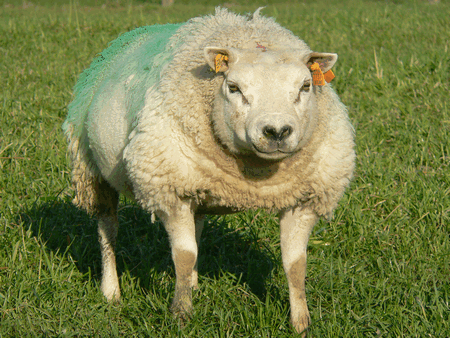Irish impose import ban following bluetongue transmission revelations

Farm leaders in both the north and the south of Ireland are calling for a total ban on imports of cattle, sheep and bluetongue susceptible species in an attempt to keep the island free of the disease.
The Republic of Ireland introduced a unilateral ban on imports from bluetongue restricted zones on 22 February. This applies to cattle over 12 months old and sheep over six months old.
It also goes beyond the EU regulations, which permit trade in live animals between zones during the vector-free period, so long as the animal has tested negative for bluetongue.
But Irish agriculture minister Mary Coughlan introduced her own “temporary and precautionary” import ban, due to “evolving information relating to transmission routes for bluetongue”.
Related cases
Specifically, this related to the cases of bluetongue in Northern Ireland in mid-February, when four bluetongue positive calves were born to imported dams.
This was the first time maternal transmission had been identified as a possible transmission route.
Last Saturday (1 March), Northern Ireland agriculture minister Michelle Gildernew followed suit with a temporary ban on breeding animals.
Policy review
This is intended to last until this Thursday (6 March). The policy will then be reviewed following a meeting of EU chief vets in Brussels on Wednesday (5 March) at which maternal transmission will be discussed.
But farm leaders are adamant this does not go far enough and are calling for a total trade ban on breeding animals and slaughter animals, until the science is fully understood.
“Possible new transmission routes have emerged and, with research still continuing to establish exactly how this disease spreads, we are now calling for a suspension of imports for any livestock which have been in a bluetongue restricted region since 1 August 2006,” said http://www.ufuni.org/portal.aspx Ulster Farmers Union president Kenneth Sharkey.
Irish farmers
Farmer concern has also been raised following an announcement in Dublin that, out of 512 imported animals tested in the Republic of Ireland since November, 24 had displayed bluetongue antibodies, suggesting they had been in contact with the disease.
Irish Farmers Association president Padraig Walshe said a total trade ban should stay in place until all transmission routes were fully understood and the risk eliminated.
These wishes will be partly met from 16 March, when the vector-free period ends, and movements of live animals out of bluetongue restricted zones will be banned again, except direct to slaughter.
